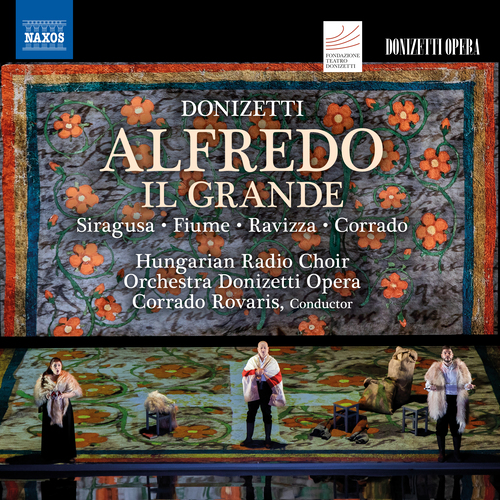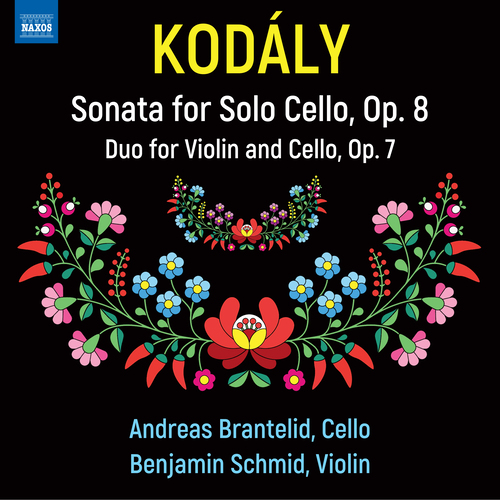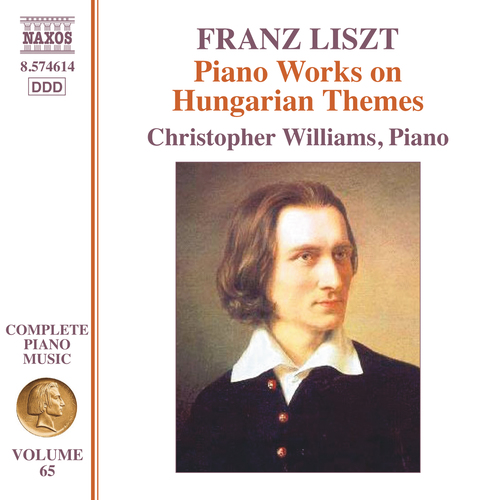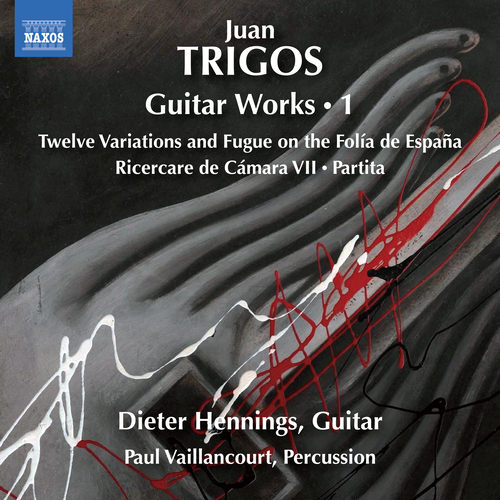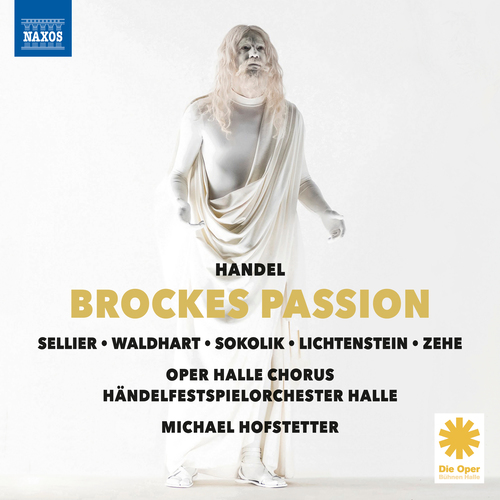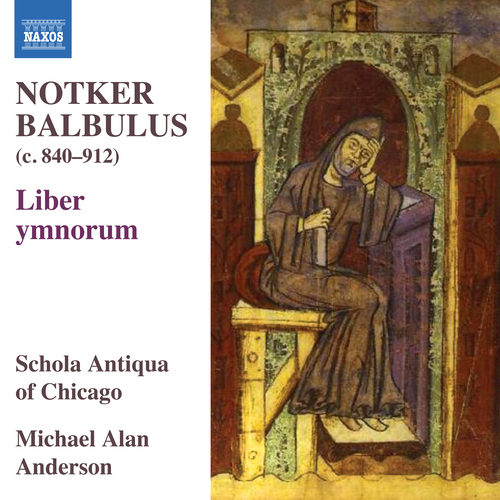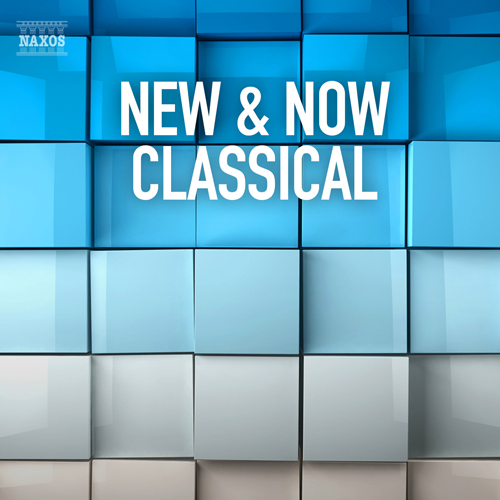The March NEW ON NAXOS highlights the latest staging of Tchaikovsky’s lyrical opera Eugene Onegin, directed by Laurent Pelly for La Monnaie / De Munt. Conductor Alain Altinoglu leads the La Monnaie Symphony Orchestra and Chorus and are joined by an outstanding cast of soloists, including French baritone Stéphane Degout in the title role. Praised by Forum Opéra for his ‘breathtaking dramatic intensity’ and lauded by the Chicago Classical Review for his ‘quicksilver agility and virile heft,’ Degout delivers a commanding performance.
Other highlights include the newest release in The Music of Brazil series, presenting works by Ronaldo Miranda; Zoltán Kodály’s works performed by cellist Andreas Brantelid and violinist Benjamin Schmid; George Frideric Handel’s oratorio Brockes Passion conducted by Michael Hofstetter; Notker Balbulus’ Liber ymnorum – a collection of early liturgical sequences; and more.
![]() Watch our monthly New on Naxos video to sample the highlighted releases of the month.
Watch our monthly New on Naxos video to sample the highlighted releases of the month.
INCLUDES WORLD PREMIERE RECORDINGS
Ronaldo Miranda is a multi-award-winning Brazilian composer with works commissioned by leading artists and institutions. His music is regularly performed in prestigious venues in Brazil and around the world. Miranda’s Piano Concerto is an exciting virtuoso blend of atonality alongside hints of Bartók, contrasting with the flowing scales and delicate patterns found in the Concertino. The prize-winning Horizontes is a symphonic poem that tells the story of Christopher Columbus’s voyage to the New World, while Variações Temporais (Beethoven Revisitado) is an inventive set of variations on some of Beethoven’s most famous motifs and themes.
Mendelssohn conceived the Violin Concerto in E minor for his childhood friend, Ferdinand David, concertmaster of the Gewandhausorchester Leipzig, though it took the composer years to perfect it. The concerto remains one of the most significant works in the genre – serene, lyrical and luminous. Tchaikovsky’s Violin Concerto in D major is another of the 19th century’s greatest concertos, written for his favourite student, Iosif Kotek, and a work of great beauty bristling with virtuoso challenges. On this album they are performed by the brilliant Guido Sant’Anna, the first South American violinist to win the prestigious Fritz Kreisler International Competition.
Masques et bergamasques *
Thème et variations
Caligula ** • Les Djinns ***
INCLUDES A WORLD PREMIERE RECORDING
French music specialist, Jean-Luc Tingaud, conducts a selection of Fauré’s secular choral and theatrical music – works that remain relatively little known. Setting a text by Victor Hugo, Les Djinns is heard in Fauré’s version for choir and orchestra, while his first venture into incidental music, Caligula, focuses largely on the lives of the women in the Roman court rather than the Emperor. Featuring both instrumental and vocal movements, Masques et bergamasques evokes the Arcadian allure of the French fête galante style – antique, luminous and nostalgic. Also included is the premiere recording of Désiré-Émile Inghelbrecht’s inventive and sympathetic arrangement of Fauré’s largest piano work, the Thème et variations.
Tchaikovsky’s lyric opera Eugene Onegin is based on Alexander Pushkin’s novel in verse – a masterpiece of Russian literature. The narrative tells the story of Onegin’s remorse in rejecting the young Tatyana and his instigation of a fatal duel in which his friend Lensky dies. The opera is constructed in what Tchaikovsky termed ‘lyrical scenes’, with music that articulates the feelings of the characters with great sensitivity and subtlety. With a minimalist set design, director Laurent Pelly’s staging underlines the lightness and sadness of the subject while fully expressing the characters’ fantasies and inner torments. After his forays into the Russian repertoire, Alain Altinoglu conducts La Monnaie Symphony Orchestra and Chorus with a cast of outstanding singers.
The Donizetti Opera Festival in Bergamo continues to present early works by Donizetti that have been unjustly neglected for decades. Alfredo il Grande, a love story that explores the defeat of the invading Danish army by the victorious Britons, was first performed in 1823 and was revived in this production two centuries later. Skilfully orchestrated, it features memorable arias for the hero Alfredo, and includes a superb concluding rondo for the heroine Amalia, as well as a radiant quintet. The opera is heard here in Edoardo Cavalli’s 2021 critical edition. Gramophone called it ‘a vocally accomplished performance’ and ‘a fine revival’.
Zoltán Kodály was influential not only as a composer and an educator, but in establishing a national Hungarian musical tradition that included a profound respect for its folk music. Kodály’s early reputation is centred on chamber music, including the Duo for Violin and Cello, with its remarkably sustained structural development and emotional range. The imaginative approach to Classical forms and considerable technical demands found in the Sonata for Solo Cello has, during the century since its composition, ensured the sonata’s status as the most significant work for solo cello since J.S. Bach’s Cello Suites.
* Only available for download and streaming
INCLUDES A WORLD PREMIERE RECORDING
Ferdinand Ries occupies a remarkable place in the history of music. He was famously a friend and pupil of Beethoven and a virtuoso pianist. His extensive oeuvre opened up the musical aesthetics of Viennese Classicism to Romanticism. Completed in 1826, the Piano Trio in C minor, Op. 143 features two lively, fast movements surrounding a poetic Adagio, reminiscent of the era’s finest opera arias. Very different is the Grand Trio in F minor, WoO 86. It features four thematically interwoven movements that traverse emotions from despair to passion and eventual peace.
For almost five decades, Franz Liszt wrote music that incorporated Hungarian elements and celebrated his country’s musical idioms. One of the most famous of these pieces was the Rákóczi March, two different versions of which can be heard in this album, the first in full sonata form, and the second in a more concise version. Liszt often utilised the verbunkos tradition as he does in Magyar dallok along with infectious dulcimer evocations, folk scales, drama and melancholy. Two contrasting versions of the Hungarian Rhapsody No. 6 – Magyar tempo and Célèbre mélodie hongroise – round out this evocative Hungarian selection.
* WORLD PREMIERE COMMERCIAL RECORDING
The Mexican-American composer, Juan Trigos, has developed the concept of ‘abstract folklore’, a process by which he assimilates various literary and musical traditions in his method of composition. This first volume of his guitar works shows the process in all its breadth, not least in the large-scale Twelve Variations and Fugue on the Folía de España, where old-world dances meet syncopated new-world rhythms. The Partita, based on the principle of variation, also evokes and alludes to dance, while the virtuosic and expressive Ricercare de Cámara VII ingeniously explores the fusion of guitar and percussion.
Barthold Heinrich Brockes was an influential German poet who added reflective and descriptive poetry into the texture of his Passion. Among several musical settings, the most famous is the one by Handel. This acclaimed staged version transports Handel’s Brockes Passion into the opera house, widening the work’s historical narrative to embrace the creation of the world, bringing a message of human greed and destruction into direct contact with the present day. The Händelfestspielorchester Halle, on period instruments, is conducted by Michael Hofstetter.
Notker Balbulus, also known as Notker of St Gall or Notker the Stammerer, was a renowned Benedictine monk at the Abbey of St Gall in Switzerland who made substantial contributions to both the music and literature of his time. These include the Liber ymnorum, which forms an important collection of early musical sequences that celebrate special moments in the liturgical calendar. As the ‘very long melodies’ of the liturgical sequences were a formidable challenge to memorise, Notker created these texts as an aid to holding the melodies within the mind and memory. They are performed here by the acclaimed and insightful Schola Antiqua of Chicago.
The New & Now playlist features all that is new and exciting in the world of classical music, whether it’s new music, new presentations or new performers. With more than 200 new releases each year, and artists from around the world, there is always something new to discover with Naxos.
































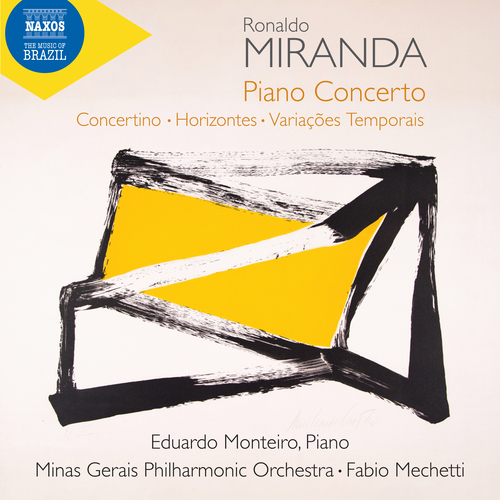
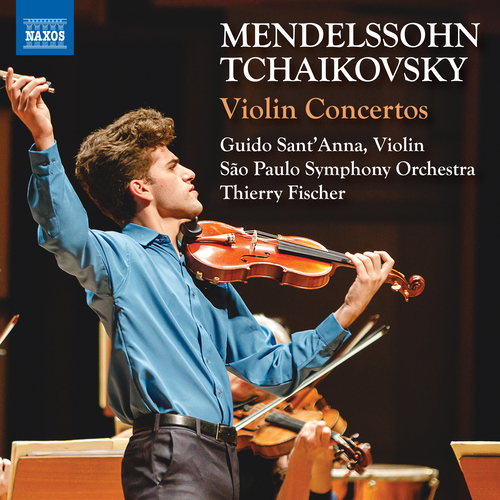
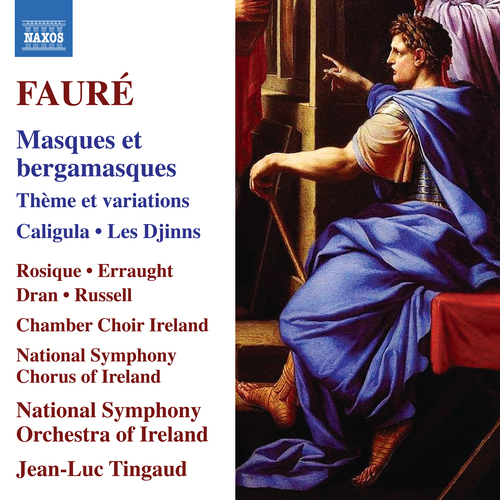
![TCHAIKOVSKY, P.I.: Eugene Onegin [DVD] TCHAIKOVSKY, P.I.: Eugene Onegin [DVD]](https://cdn.naxos.com/sharedfiles/images/cds/hires/2.110777.jpg)
